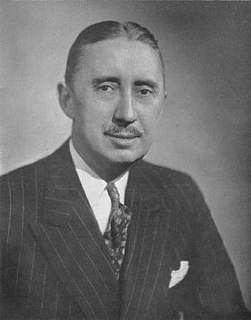A Quote by Ralph W. Sockman
Christmas renews our youth by stirring our wonder. The capacity for wonder has been called our most pregnant human faculty, for in it are born our art, our science, our religion.
Related Quotes
Presence is far more intricate and rewarding an art than productivity. Ours is a culture that measures our worth as human beings by our efficiency, our earnings, our ability to perform this or that. The cult of productivity has its place, but worshipping at its altar daily robs us of the very capacity for joy and wonder that makes life worth living.
Men love to wonder, and that is the seed of our science, and such is the mechanical determination of our age, and so recent are our best contrivances, that use has not dulled our joy and pride in them. These arts open great gates of a future, promising to make the world plastic and to lift human life out of its beggary to a godlike ease and power.
The Greeks invented the idea of nemesis to show how any single virtue, stubbornly maintained gradually changes into a destructive vice. Our success, our industry, our habit of work have produced our economic nemesis. Work made modern men great, but now threatens to usurp our souls, to inundate the earth in things and trash, to destroy our capacity to love and wonder.
That is why we need to travel. If we don't offer ourself to the unknown, our senses dull. Our world becomes small and we lose our sense of wonder. Our eyes don't lift to the horizon; our ears don't hear the sounds around us. The edge is off our experience, and we pass our days in a routine that is both comfortable and limiting. We wake up one day and find that we have lost our dreams in order to protect our days.
Human beings do not carry civilization in their genes. All that we do carry in our genes are certain capacities- the capacity to learn to walk upright, to use our brains, to speak, to relate to our fellow men, to construct and use tools, to explore the universe, and to express that exploration in religion, in art, in science, in philosophy.
The artist appeals to that part of our being which is not dependent on wisdom; to that in us which is a gift and not an acquisition-and therefore, more permanently enduring. He speaks to our capacity for delight and wonder, to the sense of mystery surrounding our lives; to our sense of pity, and beauty and pain.
When we experience moments of ecstasy-in play, in art, in sex-they come not as an exception, an accident, but as a taste of what life is meant to be. . . Ecstasy is an idea, a goal, but it can be the expectation of every day. Those times when we're grounded in our body, pure in our heart, clear in our mind, rooted in our soul, and suffused with the energy, the spirit of life, are our birthright. It's really not that hard to stop and luxuriate in the joy and wonder of being. Children do it all the time. It's a natural human gift that should be at the heart of our lives.








































